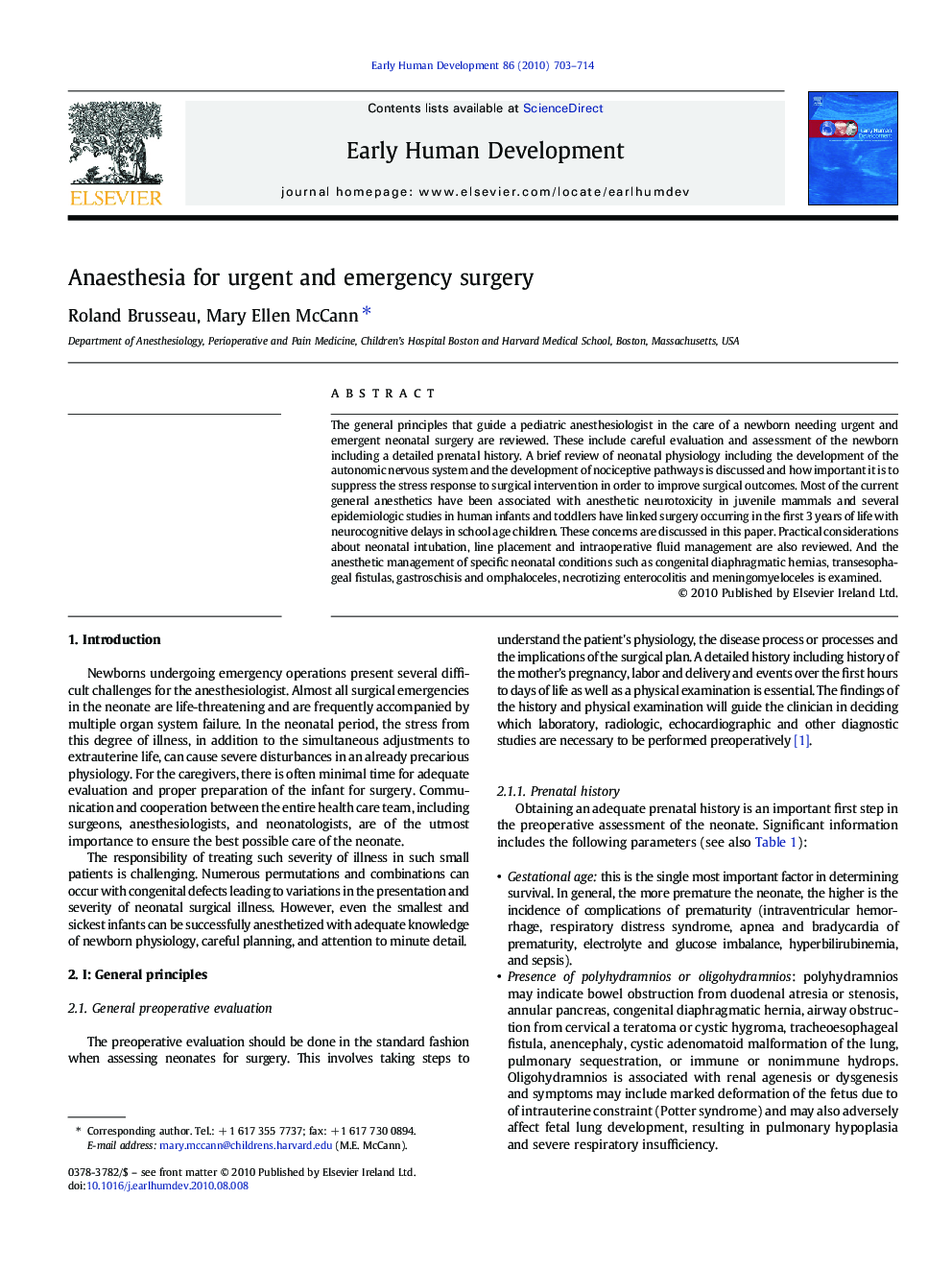| Article ID | Journal | Published Year | Pages | File Type |
|---|---|---|---|---|
| 3917412 | Early Human Development | 2010 | 12 Pages |
The general principles that guide a pediatric anesthesiologist in the care of a newborn needing urgent and emergent neonatal surgery are reviewed. These include careful evaluation and assessment of the newborn including a detailed prenatal history. A brief review of neonatal physiology including the development of the autonomic nervous system and the development of nociceptive pathways is discussed and how important it is to suppress the stress response to surgical intervention in order to improve surgical outcomes. Most of the current general anesthetics have been associated with anesthetic neurotoxicity in juvenile mammals and several epidemiologic studies in human infants and toddlers have linked surgery occurring in the first 3 years of life with neurocognitive delays in school age children. These concerns are discussed in this paper. Practical considerations about neonatal intubation, line placement and intraoperative fluid management are also reviewed. And the anesthetic management of specific neonatal conditions such as congenital diaphragmatic hernias, transesophageal fistulas, gastroschisis and omphaloceles, necrotizing enterocolitis and meningomyeloceles is examined.
